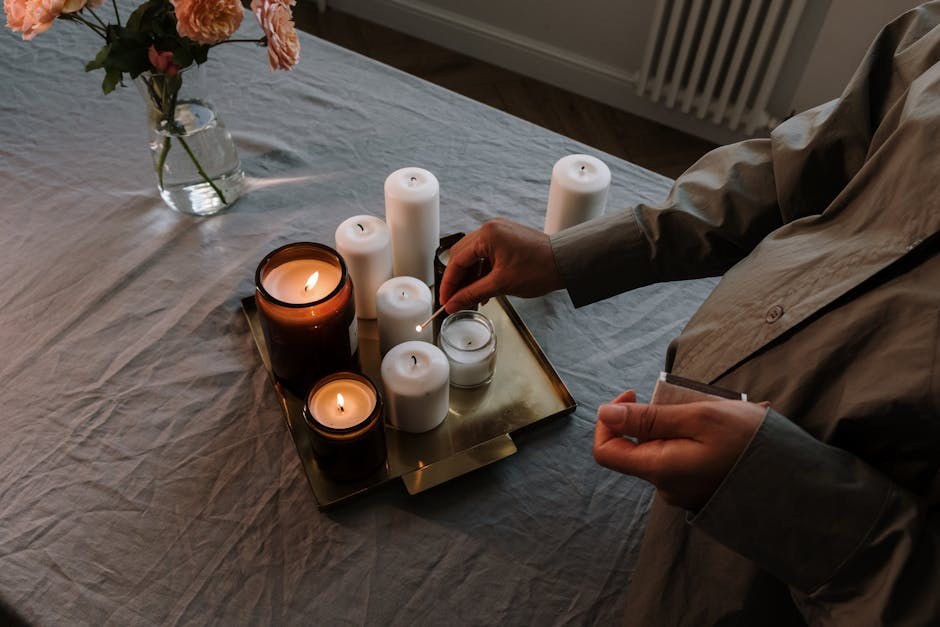Every relationship evolves – inside jokes change, routines settle in, and the easy spark of early days gives way to something steadier. Yet sometimes steadier starts to feel stagnant, and you catch yourself scanning the everyday moments for signs that something deeper is off. If you’ve been quietly wondering about signs your husband doesn’t value you, you’re not alone; many partners sense a drift before they can name it. This guide reframes that unease into language, patterns, and practical moves so you can see what’s happening and choose your next steps with clarity.
What “Being Valued” Actually Looks Like
Value in a marriage isn’t flashy – it’s ordinary care, repeated. It sounds like “How did your meeting go?” and “I remember you love that café” and “Let’s make time for us.” It looks like attention paid, not just attention promised. When you’re scanning for signs your husband doesn’t value you, think less about grand gestures and more about day-to-day deposits: the curious questions, the small follow-throughs, the tone he uses when you disagree. Each is a tiny vote for the relationship’s future.
Imagine your bond as an invisible account you both share – every considerate act adds to it, every dismissal drains it. No one keeps a perfect ledger, and life’s busyness can cause accidental overdrafts. But when withdrawals pile up and deposits stall, a feeling takes root: you start interpreting ordinary bumps as proof that you’re not seen. That feeling matters – and it’s worth decoding.

How to Read the Drift Without Panicking
Before listing patterns, check your inner posture. Curiosity helps; panic inflames. Ask yourself: Is this a once-in-a-while hiccup, or a steady rhythm? Do repairs happen after conflicts, or do resentments linger? When you evaluate signs your husband doesn’t value you, a single incident rarely tells the whole story – clusters and consistency do.
Subtle Patterns That Point to a Deeper Problem
The following patterns often travel together. You may recognize a few vividly, others faintly. Use them to organize what you’ve been feeling, not to deliver a verdict. If several show up consistently, that’s meaningful information.
Conversations shrink or stall. You used to debrief the day; now you swap logistics and weather. When dialogue is mostly surface-level – or when you feel you’re competing with screens – the message is unmistakable. If this coincides with defensiveness or eye-rolls, it can register as one of the clearest signs your husband doesn’t value you.

Memory for what matters fades. Everyone forgets sometimes, but missing things that are important to you – a milestone, a boundary you shared, a plan you both made – lands like indifference. Repeated lapses suggest your priorities aren’t being carried in mind.
You’re routinely off the priority list. Work runs long; hobbies expand; you get the leftovers. Occasional seasons are normal – perpetual sidelining is not. If you’re perpetually rescheduled, you may rightly read that as signs your husband doesn’t value you in the way you need.
Emotional distance quietly thickens. He’s near but not close – hard to reach, quick to retreat. You can feel the gap most during tender moments, when you crave warmth and get cool neutrality instead.

Affection goes on hiatus. Touch, kind words, and playful gestures ebb to almost nothing. Intimacy becomes scheduled rather than spontaneous – a checkbox instead of a connection. Over time, the absence of warmth becomes its own message.
Promises don’t become patterns. He says he’ll try, and maybe he does once, then the change evaporates. Words without follow-through can sting more than silence because hope briefly rises then falls again. For many partners, this mismatch is one of the most painful signs your husband doesn’t value you.
“Me time” crowds out “we time.” Solitude is healthy; monopolizing weekends without collaboration is not. When leisure is consistently solo – or planned without checking in – the partnership feels like an afterthought.
Blame comes easily, ownership does not. Every disagreement ends with you cast as the culprit. When accountability is scarce, safety erodes. A marriage thrives when both people can say, “I see my part.”
Decisions land without your voice. From purchases to plans, choices appear fully formed. Even if he believes he’s being efficient, exclusion communicates something else. Being consulted is about respect, not control – and its absence is frequently counted among the signs your husband doesn’t value you.
Public digs or subtle put-downs appear. Teasing that leaves you small, stories told at your expense, or “jokes” that sting – these erode dignity. Private tension is one thing; public disrespect is another.
He goes quiet about his inner world. You ask how he is and get headlines, not depth. When you’re walled off from thoughts or worries, intimacy thins. Secrecy and privacy are different – the first blocks closeness, the second still allows it.
Interest is selective. He tunes in when the topic is his; he drifts when it’s yours. Over time, you stop bringing things up – not because they don’t matter, but because you’ve learned the conversation won’t land. That learned silence often reflects how often you confront signs your husband doesn’t value you.
Defensiveness becomes the default. Even gentle feedback sparks a counterattack. If you can’t name a need without paying a toll, your nervous system will start bracing – and intimacy will pay the price.
Your wins aren’t witnessed. He misses moments that matter to you, or he downplays them when present. Celebration is a language of love – declining to speak it sends a clear signal.
Money talk is one-sided or opaque. Significant choices happen without discussion, or shared agreements get ignored. Financial cooperation is practical, yes – but at heart it’s about trust and mutual regard.
Intimacy feels like an appointment, not a desire. Everything has a slot; nothing has spark. While routines can support closeness, an overly scheduled connection can whisper that presence is an obligation rather than a joy.
He trusts others’ input more than yours. Advice from friends or family outranks your perspective on issues that affect you both. When your insight is consistently sidelined, it becomes one more of the signs your husband doesn’t value you.
Your passions get dismissed. He doesn’t need to share every hobby, but curiosity is care. Shrugging off what lights you up dims connection.
Silence replaces repair. After conflict, the silent treatment arrives – not a pause to cool off, but a tactic that keeps you guessing. Communication can be slow; it needn’t be punitive.
Future plans vanish from conversation. Vacations, next steps, even small traditions – if talk about tomorrow disappears, it’s hard to feel secure today. The absence of a shared horizon is often one of the quiet signs your husband doesn’t value you.
Why Noticing These Patterns Matters
Many people minimize small aches to avoid big conversations. That’s understandable – and costly. Naming what you see gives you choices, and choices are power. When you can articulate signs your husband doesn’t value you, you stop arguing about whether the problem exists and start talking about what to do next.
Three payoffs come from clear seeing. First, you protect the health of the relationship – small repairs outcompete large ruptures. Second, you sharpen emotional intelligence – your capacity to read and respond to feelings, both yours and his. Third, you strengthen resilience – couples who can name tension without dramatizing it usually navigate it better.
How to Respond Without Losing Yourself
What follows isn’t a script – it’s a toolkit. Pick what fits, adapt the rest. The goal is not to “win” but to restore respect, warmth, and collaboration. If you’re facing persistent signs your husband doesn’t value you, these moves can shift the dance.
Practical Steps You Can Take
Begin with a grounded check-in. Before you speak up, regulate – breathe, walk, write. Ask, “What hurts? What do I need?” When you start from steadiness, you invite steadiness back.
Describe patterns, not verdicts. Try: “I’ve noticed we talk logistics but not feelings; I miss you.” Or: “When plans change last minute, I feel unimportant.” Naming patterns frames the issue as shared terrain, not a personal flaw.
Request, don’t hint. Clear asks outperform subtle signals. “Could we set aside Thursday nights for us?” “When I share a win, can you celebrate with me?” Directness reduces guesswork – and resentment.
Track repair attempts. Repair is any gesture that de-escalates – a soft joke, a hand on your shoulder, a sincere “I hear you.” If you notice them, say so. If they’re missing, introduce the idea gently: “When we get tense, small bids for reconnection help me keep trying.” This reframes signs your husband doesn’t value you into specific, doable changes.
Protect time for connection. Schedule can serve intimacy – as long as the time inside the plan feels alive. Think: a device-free walk, coffee on the porch, cooking the same meal together. The ritual is the container; presence is the content.
Rebalance decision-making. Propose a simple rule: “No major decisions without both voices.” Practice on small things to rebuild trust, then move to bigger choices like budgets and travel.
Restore curiosity. Invite stories rather than data: “What surprised you today?” “What are you looking forward to?” Curiosity is connection’s oxygen – it converts daily life back into something shared.
Set and keep boundaries. Boundaries aren’t punishments – they’re clarity about what you will and won’t accept. For instance: “I won’t continue conversations when there’s name-calling; let’s pause and resume respectfully.” The steadier your boundary, the safer the space becomes.
Make appreciation visible. Offer specific thanks – not as a bribe, but as nourishment: “I appreciated you asking about my presentation.” Appreciation can soften defenses and make change feel rewarding rather than coerced.
Consider counseling. A neutral guide can translate patterns you’re too close to decode. If you’ve flagged many signs your husband doesn’t value you, structured support can help you both hear and be heard without looping through the same argument.
Ways to Talk That Open, Not Close
Use “when/then” clarity. “When plans shift without a text, then I feel unimportant. Next time, please loop me in.” Concrete examples beat global accusations.
Keep the door open to his experience. Try: “Is there something making closeness hard right now?” You’re seeking context, not excuses – context helps you tailor the fix.
Stay on one topic at a time. Stack too many grievances and both of you will drown. Dive deep on one issue, reach a small agreement, and build momentum.
Anchor to the shared “why.” “I want us to feel like a team again.” Returning to this compass turns friction into a joint project.
Rebuilding the Everyday – Where Change Actually Sticks
Most repair lives in small, repeatable choices. If you’ve identified signs your husband doesn’t value you, begin with the day you actually have. Could dinner be phones-down? Could errands become a drive with music you both love? Could bedtime include a five-minute check-in? These are modest acts – and that’s their power. They’re sustainable.
Likewise, revisit traditions. If anniversaries have become perfunctory, design a personal ritual: re-read a favorite note, cook your first-date meal, take a picture in the same spot each year. Rituals remind both nervous systems, “We show up for us.”
When the Needle Doesn’t Move
Sometimes you try – you speak up, you set boundaries, you invite repair – and the pattern holds. That, too, is information. If signs your husband doesn’t value you persist despite clear requests and reasonable time for change, you may need to widen the conversation: What is each of you willing to invest? What does respect look like in practice, not theory? What happens if nothing changes?
Clarity can be painful – and freeing. Whether you choose renewed effort, structured help, or a different path, you’ll be acting from truth rather than hope alone.
Putting It All Together
Noticing hurt is an act of care – for you, for the relationship, for the life you’re building. Treat the patterns you see as a compass, not a club. When you can name specific signs your husband doesn’t value you, you can also name specific requests, boundaries, and habits that restore warmth. That’s the work: transforming vague unease into clear, kind action.
And a final note for your own heart – you are allowed to ask for tenderness. You are allowed to expect collaboration. You are allowed to say, “I need more.” These aren’t luxuries; they’re the fibers of a durable love. If lately you’ve been squinting at your life and wondering where the sparkle went, let that question be the start of your next chapter. Choose one small conversation, one small ritual, one small promise kept. Let those be the first new deposits in an account you both deserve.
As you experiment, keep your eye on the gentle measures that matter: do you feel more seen after talks, not less? Is there more ease in the room, more laughter around ordinary tasks, more readiness to repair after a bump? Progress won’t be a straight line – expect steps forward and back. What you’re looking for is a trend: slowly, steadily, the atmosphere shifts from chilly to warm. If that’s happening, the old list of signs your husband doesn’t value you will begin to shrink, replaced by living proof that presence, respect, and joy can be relearned. And if it isn’t, you’ll still have done the courageous thing – you paid attention, you spoke up, and you honored what your heart knows to be true.
Where you go from here is yours to choose. May your next conversation be kinder than the last, your next shared moment more intentional than yesterday’s, and your next decision together a little more collaborative than the one before. In that steady practice, marriages rediscover their center – not instantly, but reliably – and partners who once felt invisible start to feel vividly, unquestionably valued.